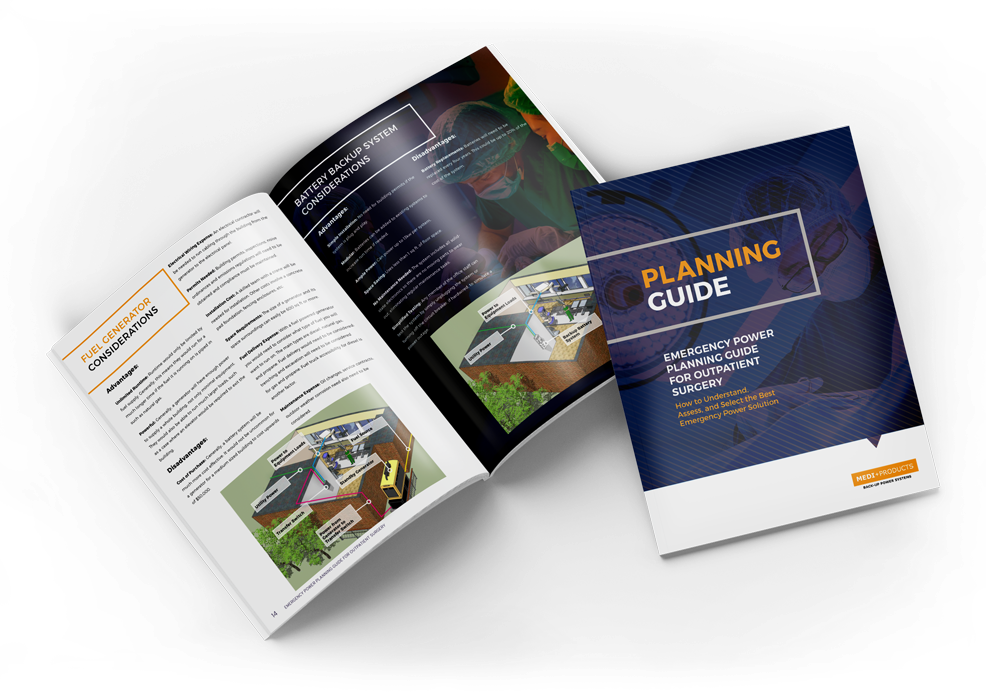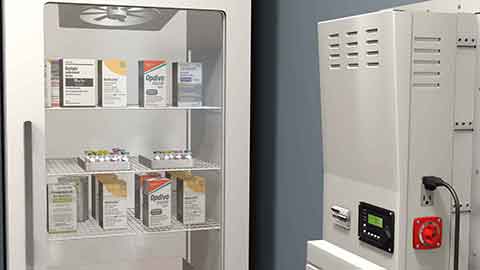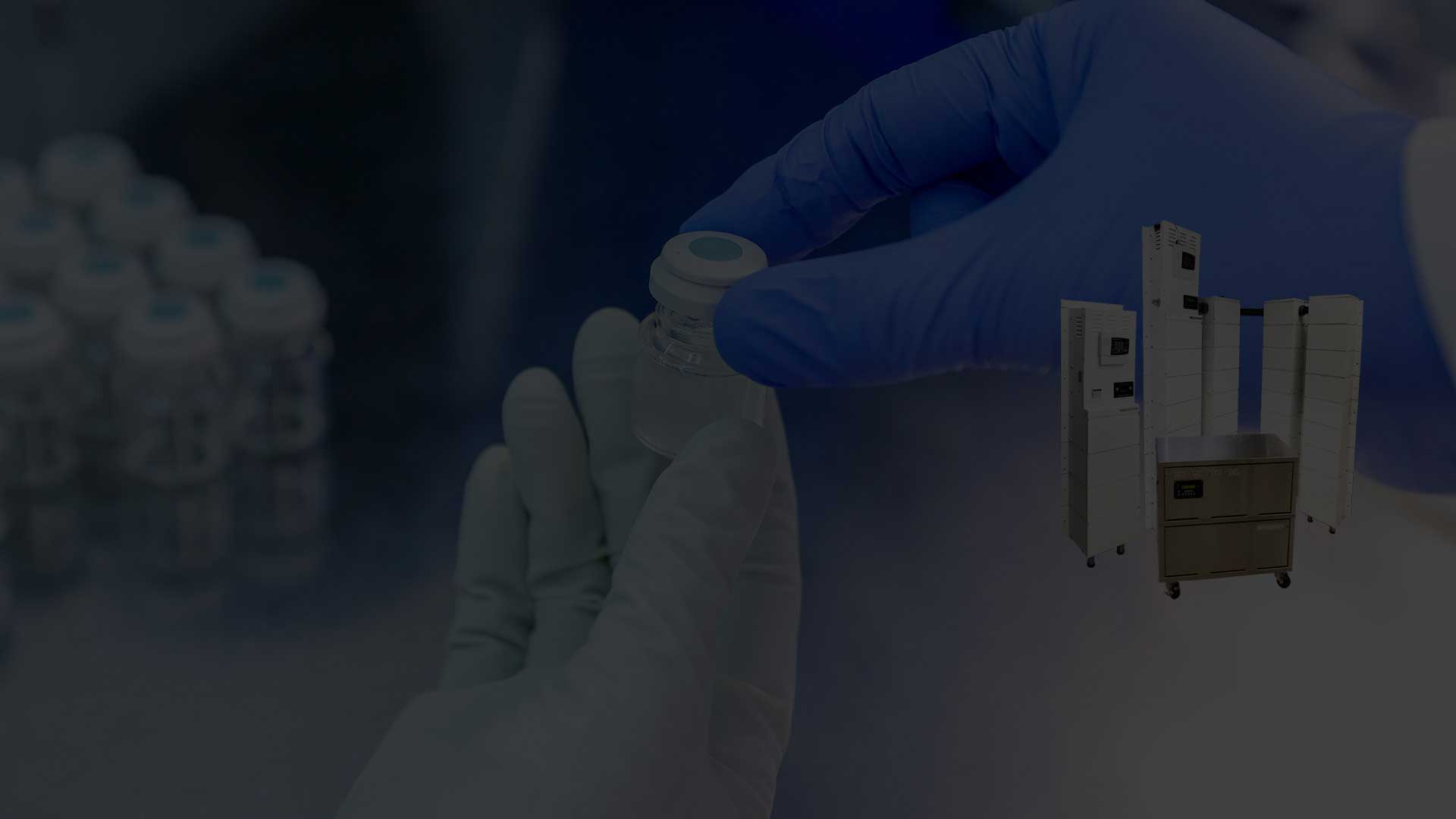NFPA 99: What You Need to Know for Your Healthcare Facility
The NFPA 99 (National Fire Protection Agency) is a code for healthcare facilities. It sets criteria for different levels of healthcare based on risk to patients, staff, or visitors. It creates its performance criteria based on risk in the healthcare facility's environment.
The code was published in 1984. Since then, it has changed and is used by healthcare facility owners, designers, and officials. They use it to establish the minimum requirements within all health care facilities. These requirements typically cover the performance, maintenance, and testing of electrical systems.
Issues like climate change and COVID-19 emphasize the need for resilience and reliability in healthcare facilities. The cold temperatures and winter storms in Texas caused problems for hospitals. They lost water and heat, a major issue. This article discusses what you need to know about NFPA 99 and how it applies to your health care facility.
Healthcare Facilities Providing Lifesaving Services and Their Power Generation
There are three important codes from the National Fire Protection Association. They focus on power generation in health care facilities that save lives. The codes are made to prevent harm from fire, electrical, and related dangers to people and property. The codes that regulate electrical systems are:
-
NFPA 70 - (the National Electrical Code or NEC)
-
NFPA 110 - This standard covers emergency and standby power systems. It includes guidelines for their installation, testing, and maintenance.
-
NFPA 99 - Health Care Facilities Code (NFPA 99)
NFPA 99 is a necessary standard for the electrical systems at healthcare facilities. It covers design, performance, installation, testing, maintenance, and upkeep. The document was created to reduce risks for patients, staff, and guests. It covers backup power systems and electrical components linked to the EES.
NFPA 99 guides building managers to comply with local electrical regulations. These parties often include facility managers, engineers, and authorities having jurisdiction (AHJs), electrical system designers, manufacturers, and installers.
NFPA 99 has no provisions for suspending the requirements of an occupied health care facility. Instead, facilities are encouraged to prepare for power outages and lessen their impact. This is crucial for saving time, money, and lives.
Power outages can occur because of bad weather, facility renovations, or system upgrades. It's important to know the risks tied to each factor.
What is the Scope of NFPA 99?
NFPA 99 defines an essential electrical system as one comprised of alternate sources of power and all connected distribution systems and ancillary equipment. This system is made to keep electricity flowing in important parts of a health facility when normal power is not working. They also help to minimize disruptions within internal wiring systems.
The code has instructions for setting up backup power systems that provide electricity if the main power fails. These systems are used in buildings and health care facilities. This includes installing, maintaining, operating, and testing the emergency power supply system (EPSS).
The code covers power sources, transfer equipment, controls, and supervisory equipment. It also includes all related electrical and mechanical auxiliary and accessory equipment. All these are typically needed to supply electrical power to the load terminals of transfer equipment.
The term “essential electrical system” referenced in NFPA 99 describes two different EES requirements. These are aptly named Type 1 or 2. These correlate to different risk categories, —Categories 1 through 4. The EES types provide different services (in their power distribution system) for the different categories. Category 1 spaces require EES Type 1 services and Category 2 spaces require EES Type 2 services.
Category 1 spaces are usually found in health care facilities. In these spaces, equipment and systems must always work and be available. Their failure can cause significant injury or death to patients, staff, or visitors. Category 2 spaces are areas of the facility where an equipment failure can cause minor injury to patients, staff, or visitors but no risk to life.
Some vital chapters to note in NFPA 99
Chapter 4
This chapter decrees that the governing body of health care facilities must conduct risk assessments . In addition, these reports must be provided to the authorities with jurisdiction. Risk assessments determine the risk category of building systems, like electrical systems, after a catastrophic powerNF failure.
Chapter 6
This chapter contains the essential standards for power generation, as it outlines the vital electrical systems for Category 1 and 2. The document also explains what clinical laboratories are and outlines the conditions for labeling a room as a "wet procedure location." The chapter explains how to check and maintain fuel cells, electrical systems, and components.

How Often is NFPA 99 Updated?
NFPA 99 is updated every three years. It changes based on new technology, security needs, and decentralized health care. New requirements may apply only to new or remodeled facilities. Sometimes, the requirement applies to all facilities for immediate execution.
Take the 2018 edition, for example. It introduced a requirement that clearly applied to both new and existing facilities. The requirement stated that all circuit breakers be maintained per the manufacturers’ instructions and industry standards. Circuit breakers may seem small compared to health care facilities, but they can still make a big difference.
Getting Expert Help Will Make it Easier for You to Comply with NFPA 99 Requirements.
Once the power goes out, the clock starts and temperatures begin to rise.
Battery backup systems offer instant and automatic power for both medical equipment and laboratory appliances alike. No staff needs to be on-site to monitor or start the generator. Valuable samples and inventory will stay safe without any extra effort. This makes them an ideal solution for a vaccine coordinator looking to ensure inventory remains safe.
Additionally, their vertical, cabinet-like form factor and leak-proof batteries mean they can be installed in even the tightest spaces and oriented in anyway to make them fit. Meaning now matter how crowded your vaccine or sample room is, you can ensure you'll be protected.
Plus, if your lab or storage room is truly tight on space, a hardwired backup power unit can instantly supply remote power to your appliance—directly via the outlet its already plugged into.
No matter what system you choose, it will protect your biomedical and chemical samples from power loss. It guarantees a smooth switch from utility power to backup power, avoiding temperature excursions.
And for Facilities who perform outpatient operations, battery power instantly engages, keeping your operations going with zero downtime due to their advanced battery technology.
Even better, is that battery generators can be outfitted with as much power as you want. So system’s can be designed with enough power to protect a facility’s inventory:
-
Overnight
-
All day
-
Over a weekend
-
Or even for a whole week.
So, to protect your facility from tens of thousands of dollars in lost inventory speak to a Medi-Products battery backup expert.
They’ll help design you a system that both meets your power needs and will fit inside your facility—for a much lower cost than what your vaccines are worth. So a backup power system pays for itself the first time your power goes out.
Designing a system for you is as easy as taking a picture of your appliance’s nameplate, and a photo of the room where it’s in.
Then, you just email both photos to our Product experts, and we’ll provide you with multiple options for backup power protection.
At Mediproducts, we provide you with all the help you need to keep up with NFPA 99 changes, including all relevant local and regional standards. If you have questions about meeting NFPA requirements for your emergency and electrical power systems, contact us. We will be happy to answer all of your questions.
For more information contact: 1.800.7653237


